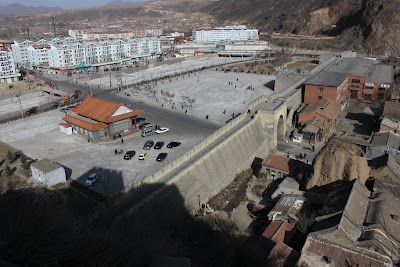Almost all the "art areas" in Beijing are built illegally on agricultural land: when artists were looking for cheap studio space, they approached peasants, who would either put up basic buildings and rent them out, or allow artists themselves to build studios, signing leases for 3, 5 or 10 years. However, both sides knew that this was illegal as the land was only zoned for agriculture. Only land zoned for industry (usually land with abandoned factories) could be put on 30 year leases to the artists, and these leases are usually honored.
...
So, the situation is not at all black and white as the Western press generally presents it, of the evil or negligent Communist government, helpless peasants, wronged artists, and rapacious officials, although these all exist to some degree. Everyone is out for a good deal, and the outcome is generally decided on economics, much as in the West. The difference is that, since the laws are not set up for private ownership, there is a lot more chance of ambiguity, with much more maneuvering where each party tries to work out how to secure themselves, or to work things to their own advantage.
Also see: Andrew Jacobs's reporting in the New York Times.























































